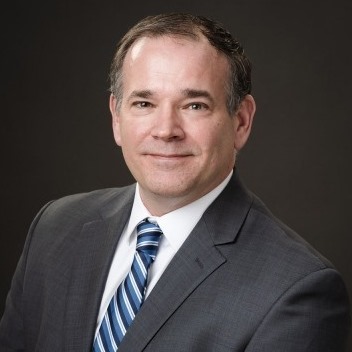
Michigan Supreme Court
East Lansing District Judge Molly Grennwalt works with a veterans court in Ingham CountyBy ANISH TOPIWALA
Capital News Service
LANSING – A veteran who was discharged from the military during the COVID-19 pandemic without any knowledge of support options was charged with assault.
He then found himself in a rigorous 18-month program in a veterans treatment court in Ingham County, which enabled him to build new relationships and mend old ones.
After finishing the program, he planned on pursuing a career in law enforcement.
“His graduation was just an incredibly moving and memorable event,” said East Lansing District Judge Molly Greenwalt, who works in the treatment court.
“He’s a remarkable individual who showed so much strength and perseverance in building a life for himself while he was in our veterans treatment court,” Greenwalt said.
There are 28 veterans treatment courts across the state.
Of those who entered such programs, 70% completed them successfully, with their unemployment rate dropping by 88%, according to Greenwalt.
Veterans treatment courts are a post-conviction program that gives needed support to veterans facing criminal charges due to substance abuse or mental disorders.
The program is highly structured with five phases. It consists of a team of attorneys, veteran mentors, the Veterans Administration and other providers who regularly discuss needs with the participants.
Those needs generally include housing, financial services and health care, which includes mental health and substance abuse treatment.
“It’s really a heightened level of probation, where the participant commits to voluntarily participating in the program,” Greenwalt said.
Marc Curtis, a veteran and lawyer in Norton Shores who represents veterans in treatment courts and helps them with VA benefits, says that getting participants can be difficult because many are not aware of the program’s existence.
“That’s the biggest problem for vets right now,” Curtis said. “Most of them get out (of the military) and they’re not informed about the benefits they’re actually entitled to.”
Curtis uses his influence as an attorney to help fellow veterans understand such opportunities.
“Any time I have a veteran that comes into my office on a criminal matter, the first question I ask is if they are enrolled in the VA for benefits,” Curtis said. “If not, that’s the first thing we do.”
Once that step is taken, the door opens to other programs like alcohol counseling and treatment for post-traumatic stress disorder, or PTSD, Curtis said.
Another potential challenge that may arise is how time-consuming the program is, Curtis said.
“I had two clients that have third shift jobs working in a factory and they didn’t need full-time supervision,” Curtis said. “They just needed to be monitored by a probation department,” which the VA allowed for them.
A separate state program helps veterans who are in prison and county jails.
The Michigan Incarcerated Veterans’ In-Reach Program holds workshops about employment opportunities with advice about interviewing and resume-building.
It is funded through a Pathway Home 3 grant from the U.S. Department of Labor’s Employment and Training Administration.
“We do mock interviewing sometimes,” said Crystal Bersche, the state administrative manager of the state Department of Labor and Economic Opportunity. “That can include how to address those difficult questions when an employer may ask about the incarcerated piece” in a resume.
The content of the workshops is based on feedback from participants.
“Each workshop is never going to be the same,” said Bersche.
When participants are released, they receive veterans’ career advisor contacts who can provide support when they face barriers in food, housing or securing additional resources.
“Once the veteran career advisors deem that veteran to be what we consider job-ready, which means all those barriers were either reduced or removed, they are then connected with our local veteran’s employment representatives,” Bersche said.
“The ultimate goal of this grant is to reduce recidivism,” said Bersche.
As of March 28, the program has served 214 participants with a 1% recidivism rate.
Bersche said that a grant modification to expand the program was recently approved. That would extend the program into additional correctional facilities and all 83 county jails.
“A lot of veterans will express that they don’t feel as though they deserve to be considered a veteran,” Bersche said. “They’ve lost that sense of pride when they’re incarcerated. So these workshops help build them back up. We give them a hand up.”
Michael Bovill, another veteran and attorney in Grand Rapids, described the struggle many veterans face in adjusting to civilian life.
“It’s a challenging transition,” Bovill said.
“You go from a very service-oriented, mission organization where everyone coalesces around that purpose. And it is very different from what you see in many segments of society,” he said.”You lose that sense of purpose and you lose that built-in community.”
